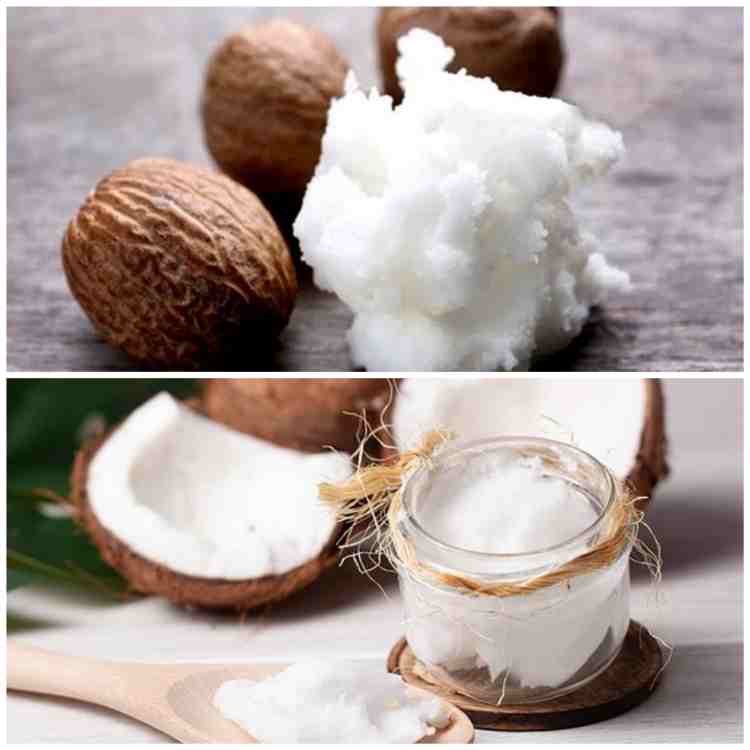Shea Butter and Coconut Oil for Skincare! Which is Better for Skin?

When it comes to natural ingredients for skincare, two popular choices are shea butter and coconut oil. Both are rich in nutrients and have moisturizing properties that can benefit the skin. But which one is better? Let’s take a closer look at each ingredient and compare them to find out.

What is Shea Butter?
Shea butter is a fat extracted from the nuts of the shea tree, which is native to Africa. It has been used for centuries for its moisturizing and healing properties. Shea butter is rich in fatty acids, vitamins, and minerals that help to nourish and protect the skin. It is also known for its anti-inflammatory and antioxidant properties, making it a popular ingredient in many skincare products.
What is Coconut Oil?
Coconut oil is an oil extracted from the meat of mature coconuts. It has been used for centuries in traditional medicine and is now widely used in skincare products. Coconut oil is high in saturated fats, which help to lock in moisture and prevent water loss from the skin. It also contains vitamin E, which is a powerful antioxidant that can help to protect the skin from damage caused by free radicals.
Shea Butter vs. Coconut Oil: Which is Better for Skin?
Both shea butter and coconut oil have their own unique benefits for the skin. Let’s take a look at how they compare in terms of moisturizing, anti-inflammatory, and antioxidant properties.
Moisturizing Properties:
Shea butter is a more potent moisturizer than coconut oil. It contains more fatty acids and has a thicker consistency, which makes it more effective at moisturizing dry and damaged skin. Shea butter is also better at penetrating the skin’s surface and delivering nutrients to the deeper layers of the skin.
Coconut oil is also a good moisturizer, but it is not as effective as shea butter. It has a lighter consistency and is more easily absorbed by the skin, making it a good choice for those with oily or combination skin.
Anti-Inflammatory Properties:
Both shea butter and coconut oil have anti-inflammatory properties that can help to soothe irritated skin. Shea butter contains a compound called lupeol cinnamate, which has been shown to reduce inflammation and redness in the skin. Coconut oil contains lauric acid, which also has anti-inflammatory properties.
However, shea butter is a more effective anti-inflammatory agent than coconut oil. Its high concentration of lupeol cinnamate makes it a potent anti-inflammatory that can help to reduce inflammation and redness in the skin.

Antioxidant Properties:
Both shea butter and coconut oil are rich in antioxidants, which help to protect the skin from damage caused by free radicals. Shea butter contains vitamins A and E, which are powerful antioxidants that can help to protect the skin from UV damage and environmental pollutants. Coconut oil also contains vitamin E, as well as other antioxidants such as ferulic acid and p-coumaric acid.
In terms of antioxidant properties, shea butter is slightly more effective than coconut oil. Its high concentration of vitamins A and E makes it a more potent antioxidant that can help to protect the skin from damage.
Conclusion:
In conclusion, both shea butter and coconut oil have their own unique benefits for the skin. Shea butter is a more potent moisturizer and anti-inflammatory agent, while coconut oil is lighter and more easily absorbed by the skin. Both ingredients are rich in antioxidants and can help to protect the skin from damage.
So, which one is better for skin?
It really depends on your skin type and the specific needs of your skin. If you have dry, damaged, or mature skin, shea butter may be a better choice for you. If you have oily or combination skin, or if you’re looking for a lighter moisturizer, coconut oil may be a better choice. Ultimately,




